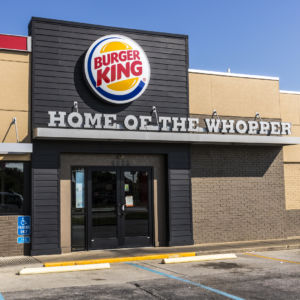Few government policies have provoked such angst and passion as net neutrality.
Frustrated by the Federal Communication Commission’s repeal of the rule in December, state governments have crafted a work-around to continue regulating Internet Service Providers. States like New Jersey and Washington have issued executive orders requiring government agencies to boycott ISPs who engage in “paid prioritization.” But if proponents truly grasped the economic implications of net neutrality, they would quickly lose their fervor for it.
Perhaps state governments were swayed by Burger King’s recent pro-net neutrality ad campaign. In the ad, customers are told they must pay steep fees or wait longer to eat. The ad implies that ISPs will gouge customers now that net neutrality is repealed. The ad ends with a disappointed customer saying, “The Whopper actually taught me about net neutrality. It’s stupid, but true.”
That actor was right about one thing …
Obviously, the internet is more complicated than a hamburger. But like most great ideas, its purpose is simple. Essentially, the internet transmits packets of information between users.
Net neutrality would require that all packets of information be treated equally. What could be wrong with that?
Such “neutrality,” however, proves patently ridiculous when applied to other delivery industries. Consider a hypothetical “package neutrality” for shippers of physical packages. Delivery companies like UPS and FedEx would have to ship all parcels at the same speed and for the same price. Such a policy would create major havoc.
Time-sensitive packages containing medical equipment or crucial legal documents would have the same priority as junk mail destined for a recipient’s trash can. Without being able to charge different prices, shippers wouldn’t know how to allocate scarce delivery trucks and manpower to those who most value their services.
Because everyone would pay one price under “package neutrality,” people sending relatively unimportant packages, who could afford to wait a few days for delivery, would face artificially high prices. Meanwhile, consumers with more valuable packages, who would pay shippers for faster delivery if they could, would experience slower service.
Forced equality of results is usually a bad idea. Few today would be foolish enough to favor “package neutrality.” Most can see that it would be blatantly inefficient. It’s no different for net neutrality.
Moving things fast is costly. That goes for physical and digital packages alike. The boogeyman of net neutralists, “paid prioritization,” is merely the eminently reasonable concept that people who want to have more resources used to move things faster should pay more for that service, whether we’re talking about delivering physical packages overnight by airplane or streaming high definition movies over the internet.
Proponents of net neutrality are implicitly claiming that free markets reduce innovation and diminish service quality. Yet, there were no net neutrality regulations before 2015 and the internet grew tremendously. Was there a sudden improvement to the internet in 2015 when net neutrality was imposed, or a sudden deterioration last year when it was repealed? Despite the doomsday prophesying of net neutralists, no such calamity occurred. Net neutrality advocates see a dystopian future on the horizon, perhaps inspired by the sci-fi movies they’ve been able to stream, thanks to a largely free market for internet access.
Burger King’s own business model contradicts its stance on net neutrality. If it really thought all customers should be charged the same price and served on the same timetable, it wouldn’t offer a drive-through window, or ask their customers to pay more for extra meat.
Rather than crack down on ISPs with executive orders or boycotts, perhaps state governments should follow Burger King’s lead by imposing a “burger neutrality” law, forcing fast-food companies to sell all variations of their products at the same price and force their customers to stand in the same line? We doubt Burger King, or its customers, would be enthusiastic about such a policy.

